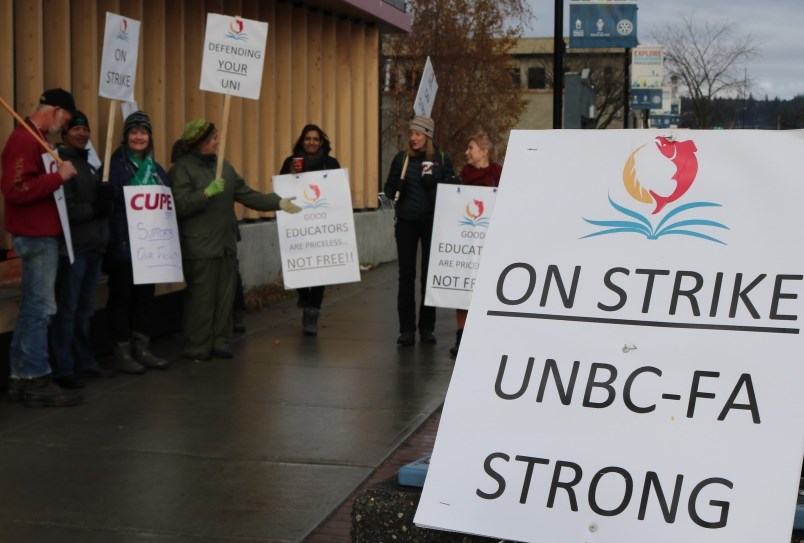The University of Northern British Columbia and its faculty association have ratified a new collection agreement - one that the sides say sets the stage for a better era of labour relations.
“This agreement is historic,” said UNBC Faculty Association president Dr. Paul Siakaluk in a joint statement issued Tuesday. “It compensates our members fairly and establishes a baseline for productive future relations between UNBC and the UNBC-FA."
The outcome brings to an end a long-running negotiation that included a three-week strike by UNBC faculty in November 2019. The following month, the sides agreed to take their differences to "final offer selection arbitration."
However, a separate agreement was reached outside the arbitration process, the sides said in the statement.
“I commend the Faculty Association leadership team and appreciate their willingness to renew our conversation," UNBC interim president Geoff Payne said in the statement. "Over the past year we have developed a very strong foundation together upon which we can collectively build an improved labour relations environment leading into our University’s future.”
The agreement runs retroactively from July 1, 2019 to June 30, 2023 and covers nearly 500 faculty, including professors, instructors, lecturers, sessional lecturers, librarians and senior lab instructors,
It includes general wage increases of two per cent per year, a redesigned compensation framework more in line with other post-secondary institutions, and "other improvements meant to foster a productive labour relations environment." The agreement also falls within the B.C. government’s 2019 sustainable services negotiating mandate.
Some additional required committee work is still to be carried out, according to the statement.
A major sticking point appeared to be treatment of faculty who receive a stipend in the form of a so-called "market differential" payment in addition to the salaries they received through the collective agreement.
UNBC-FA filed a complaint to the B.C. Labour Relations Board claiming UNBC was engaging in bad faith bargaining by including in the proposal it took to arbitration a proviso that would see those on the agreements have their stipends reduced by the amount of the salary increase.
UNBC-FA argued in part that the payments are determined by contract, such that reducing those payments would necessarily be a breach of the contract.
In July 2020, an LRB panel member ruled in favour of UNBC, finding that while the employer eventually wants to do away with a "two-tiered" wage system by not renewing the market differential agreements when they expire, at no time during the term of the collective agreement would their total salaries be reduced.
The decision was upheld on appeal by UNBC-FA in March.
In an interview, Siakaluk said the stipends remain in force and will be the topic of further discussion by a working group. He said the stipends are negotiated outside of the collective agreement.
According to the complaint UNBC-FA filed with the LRB, 51 of the 220 full-time faculty receive the stipends, which can be significant - as much as $49,000 or 65-per-cent increase in a member's salary.



